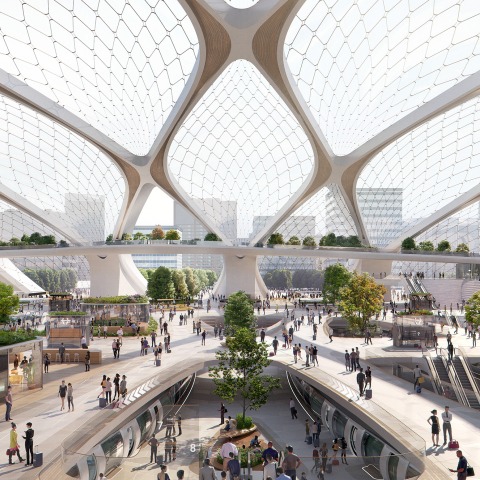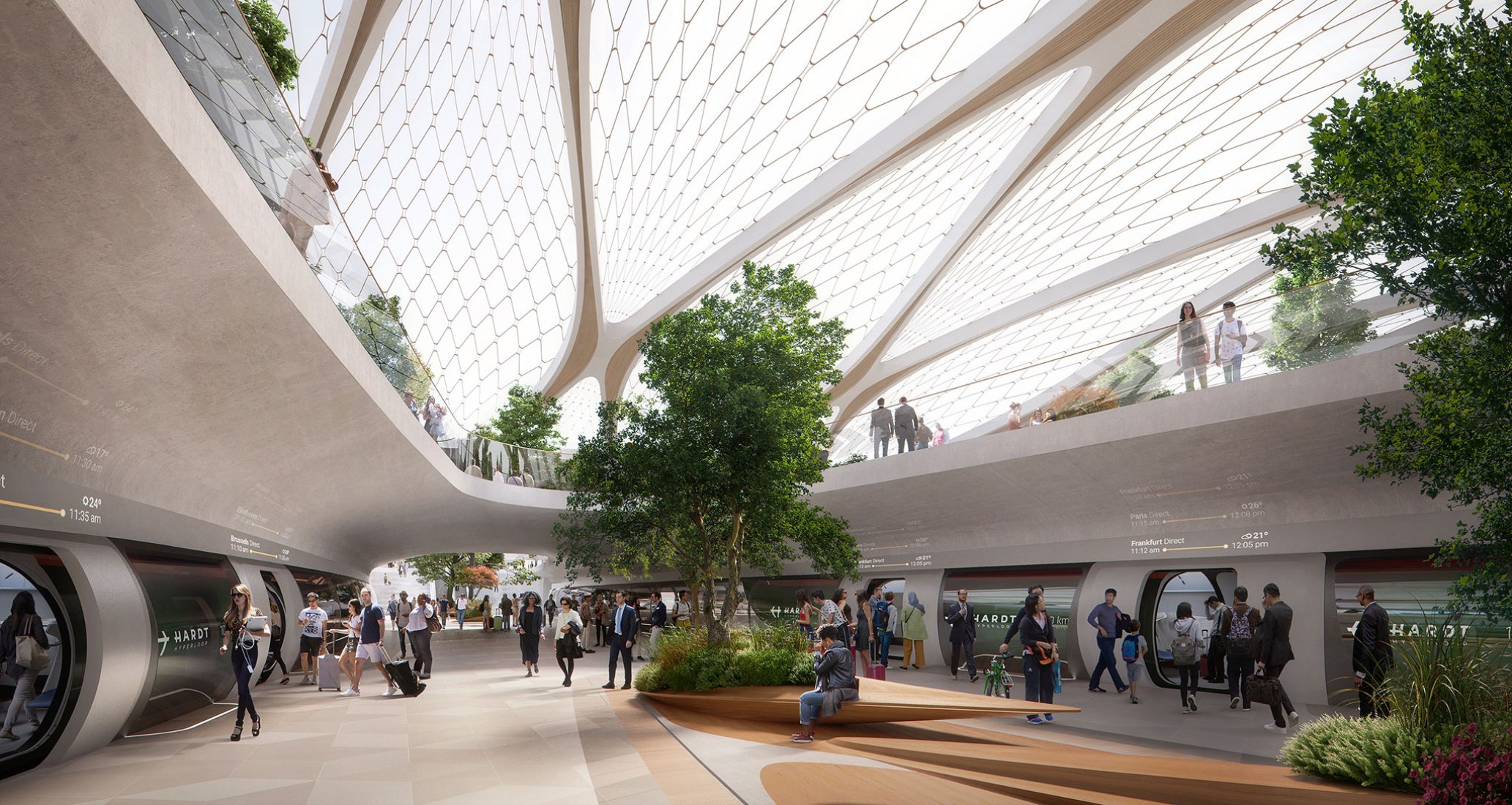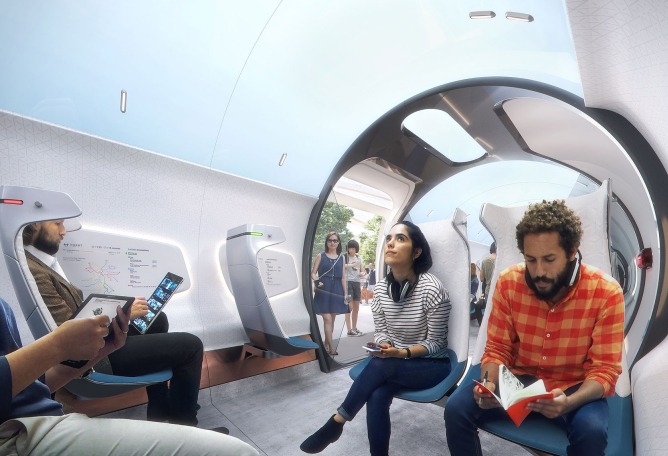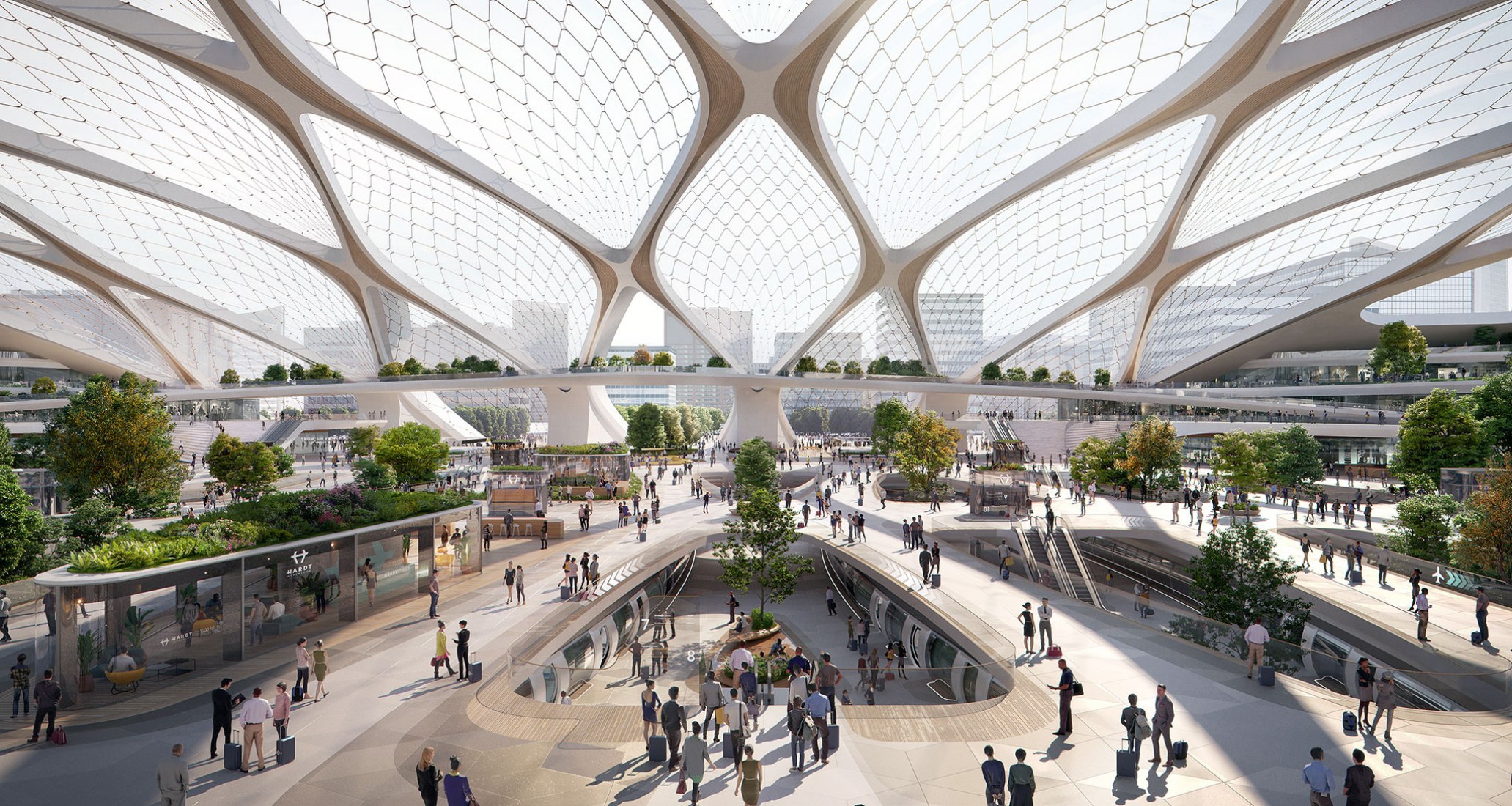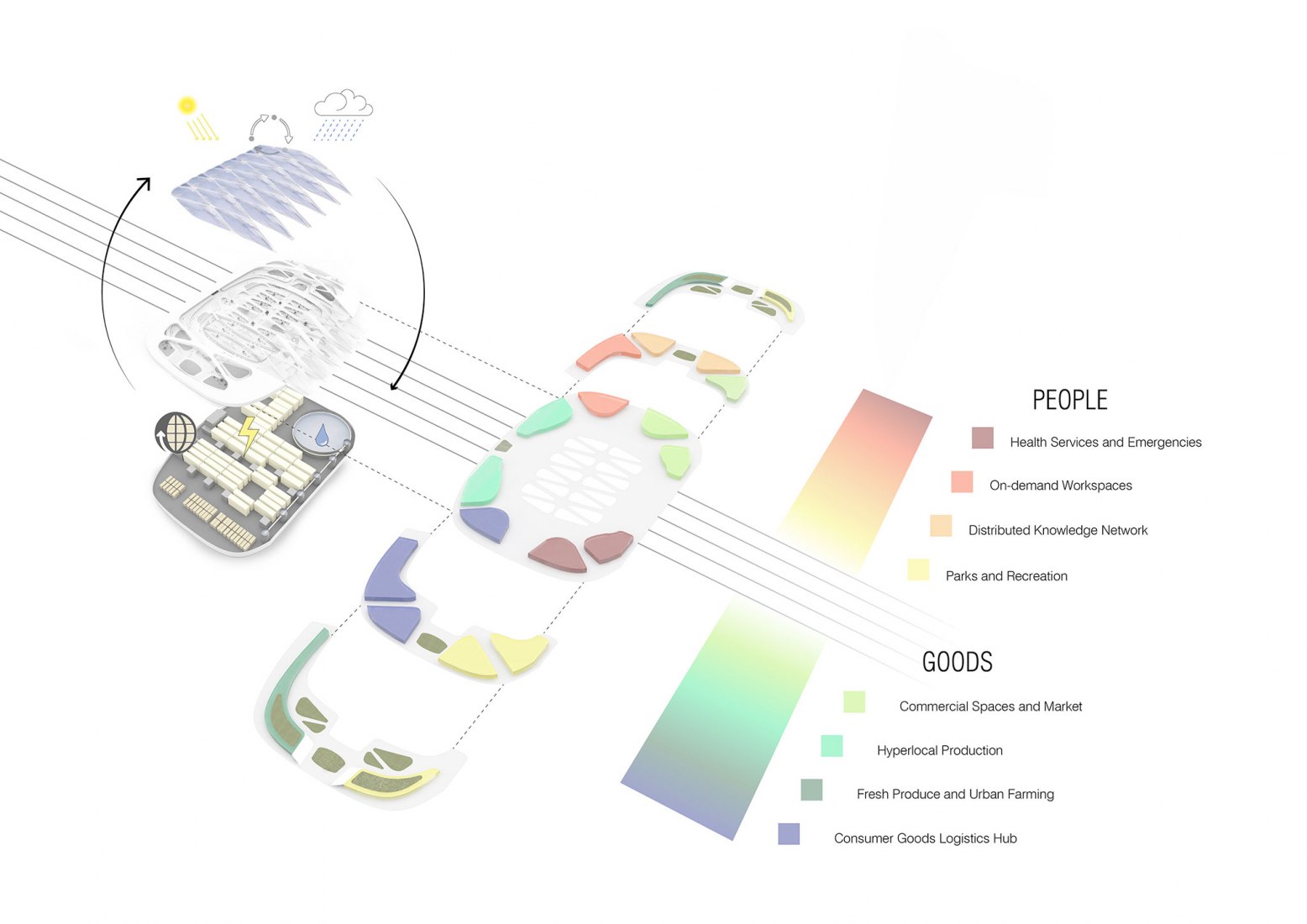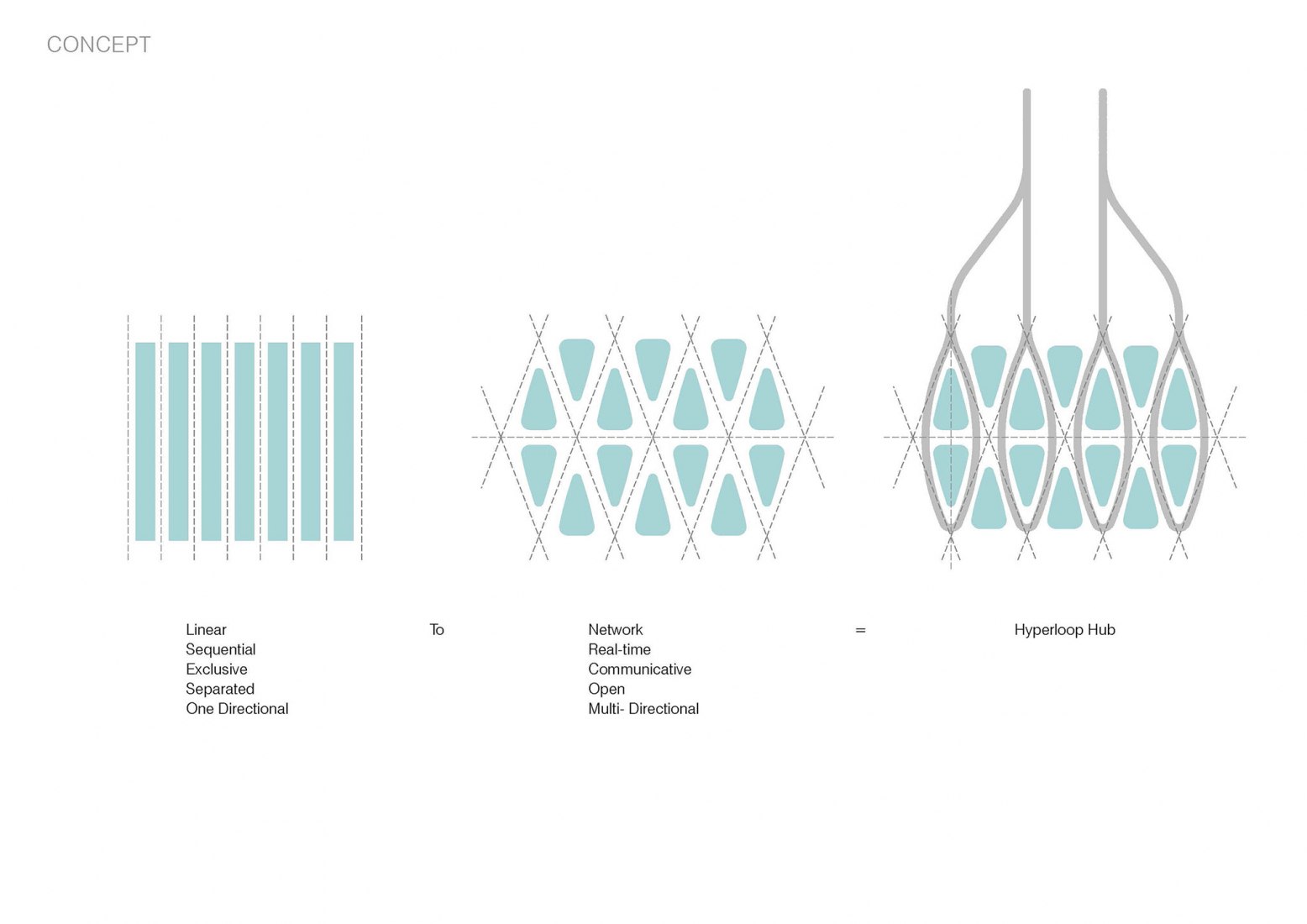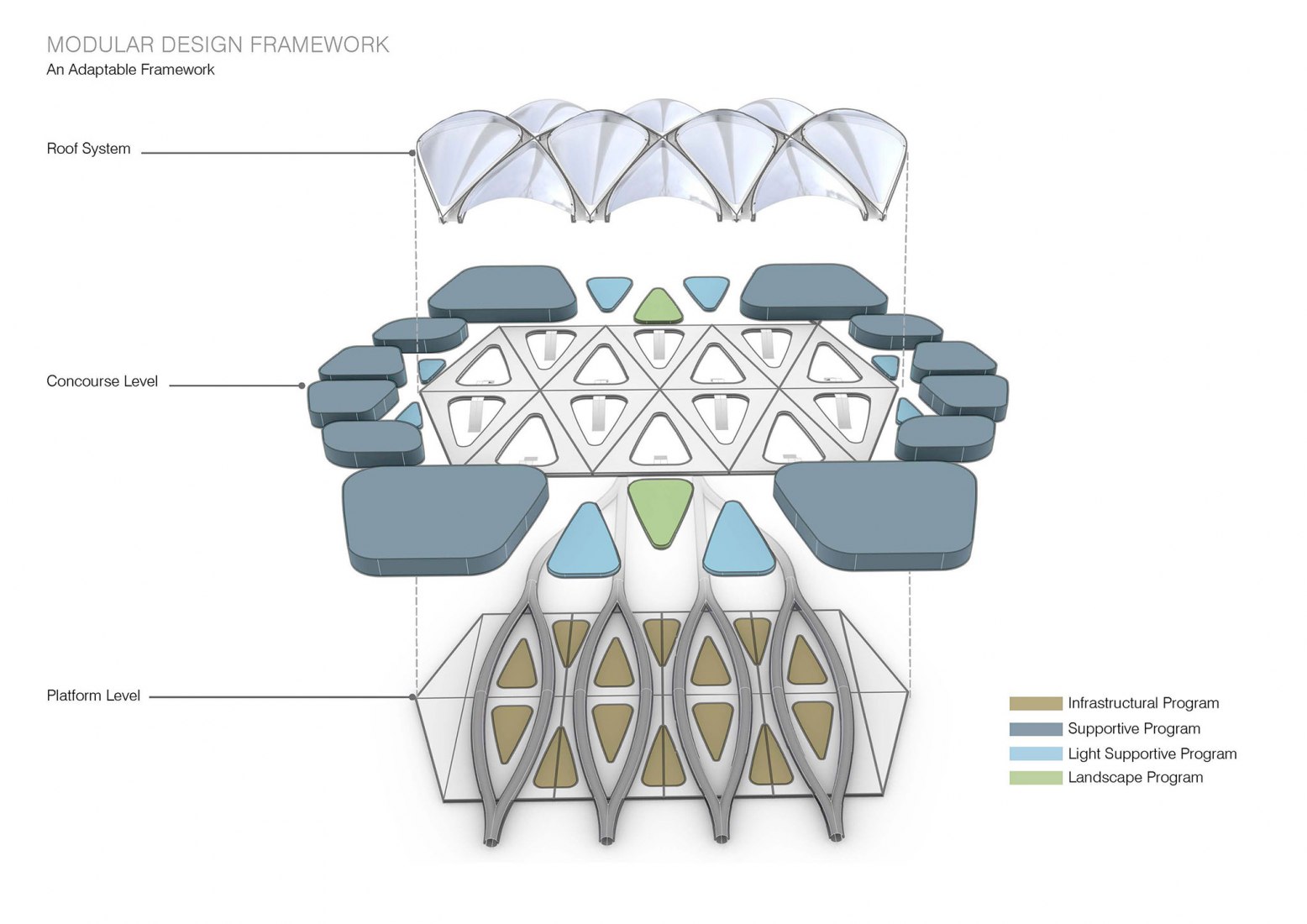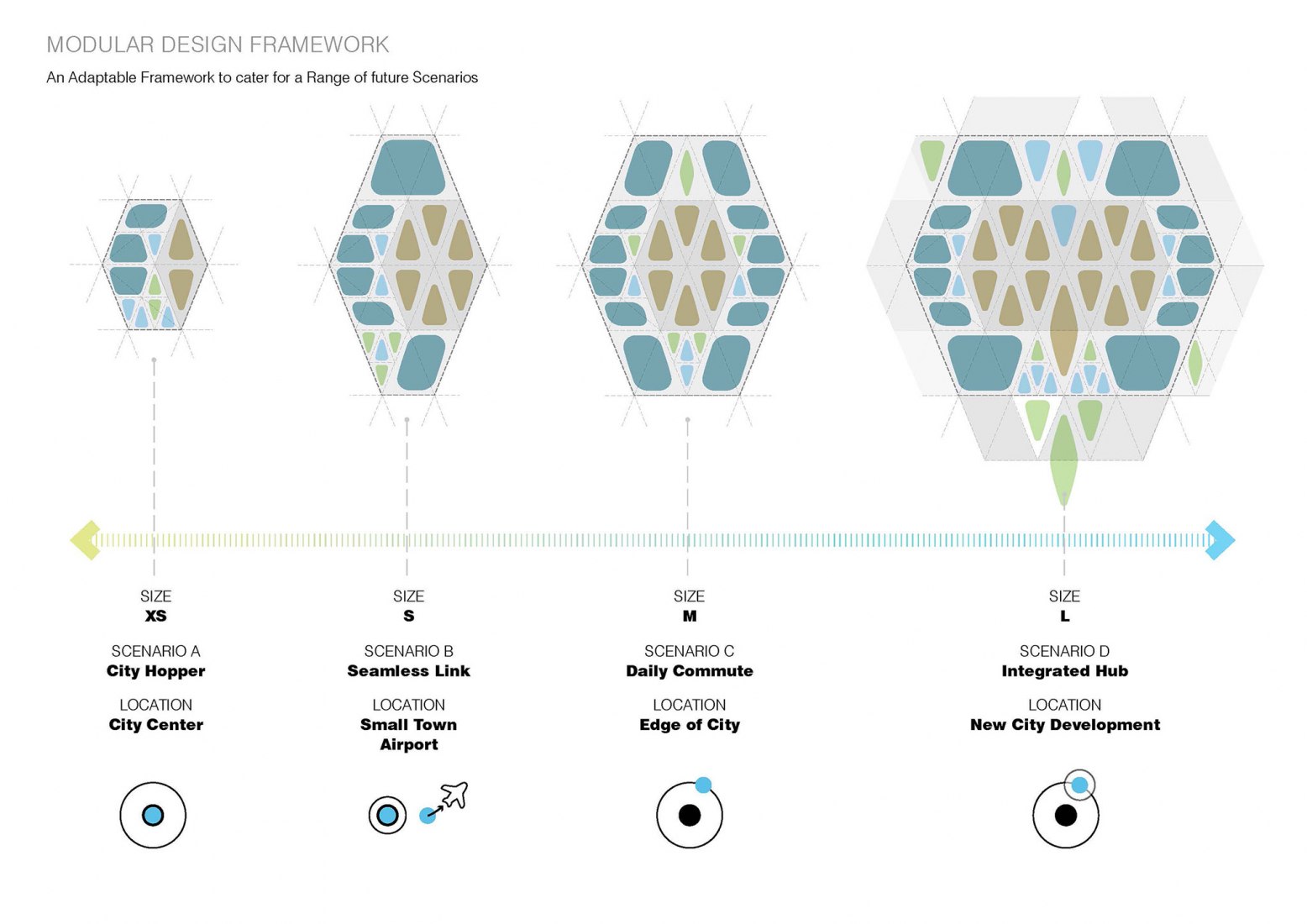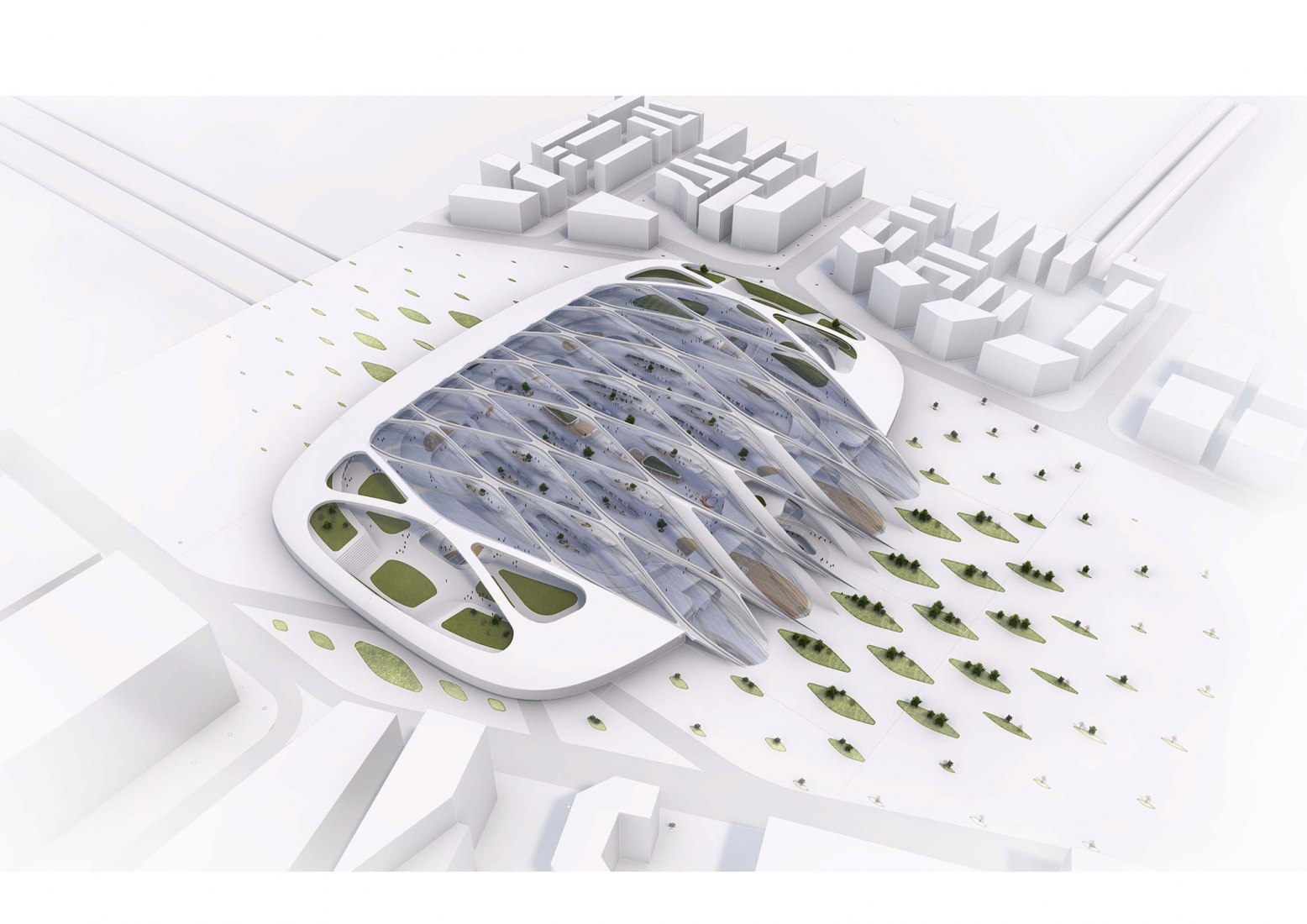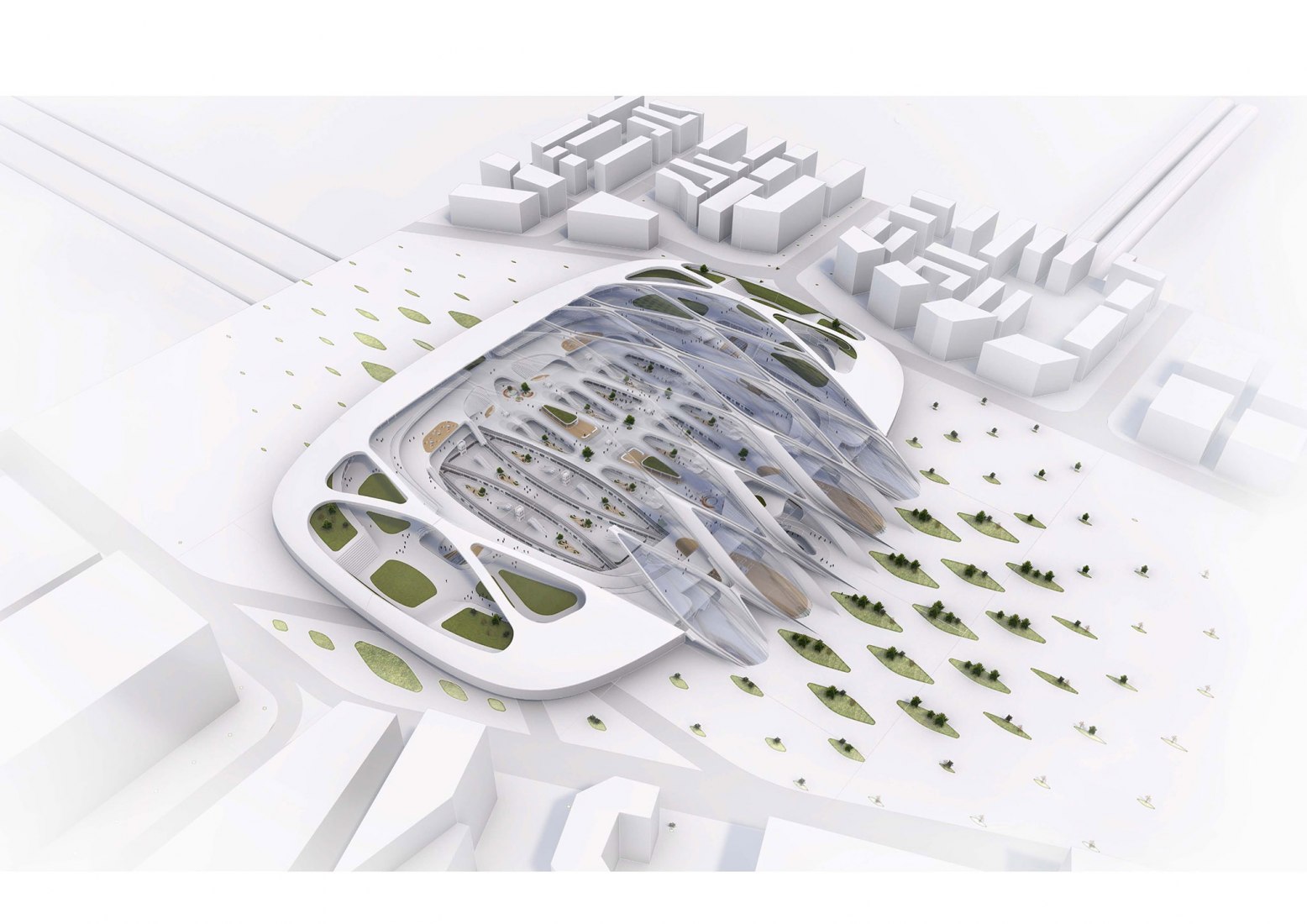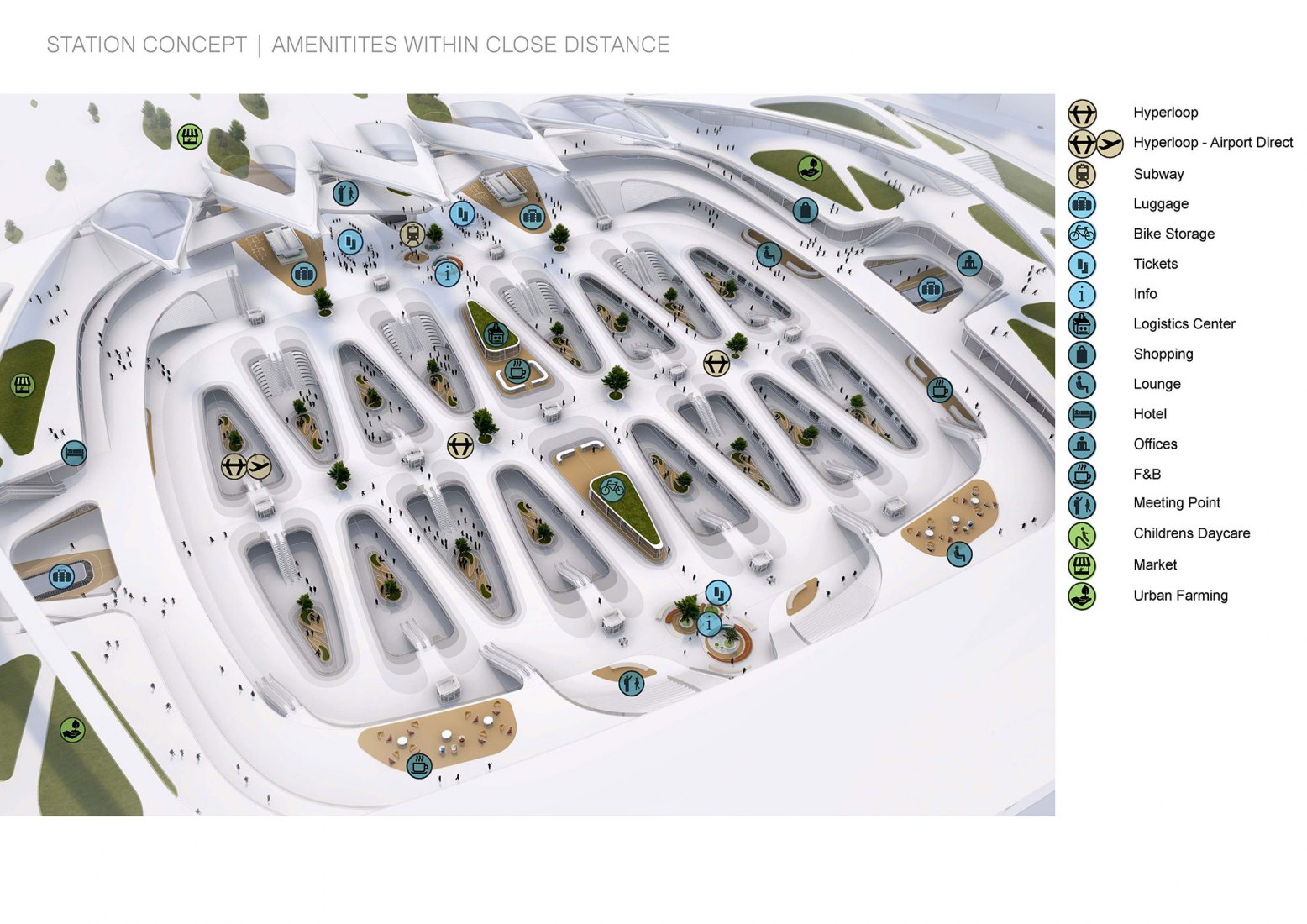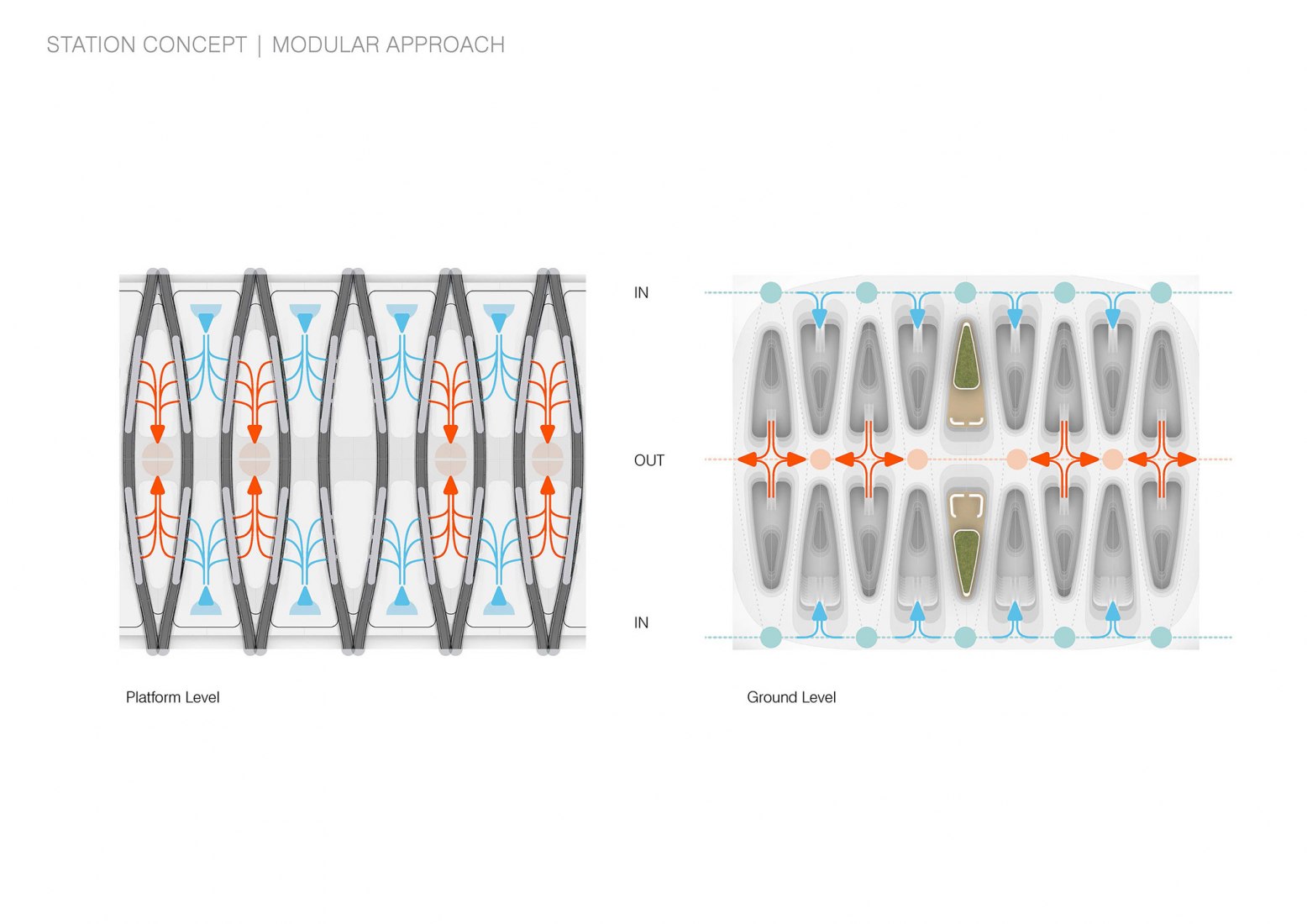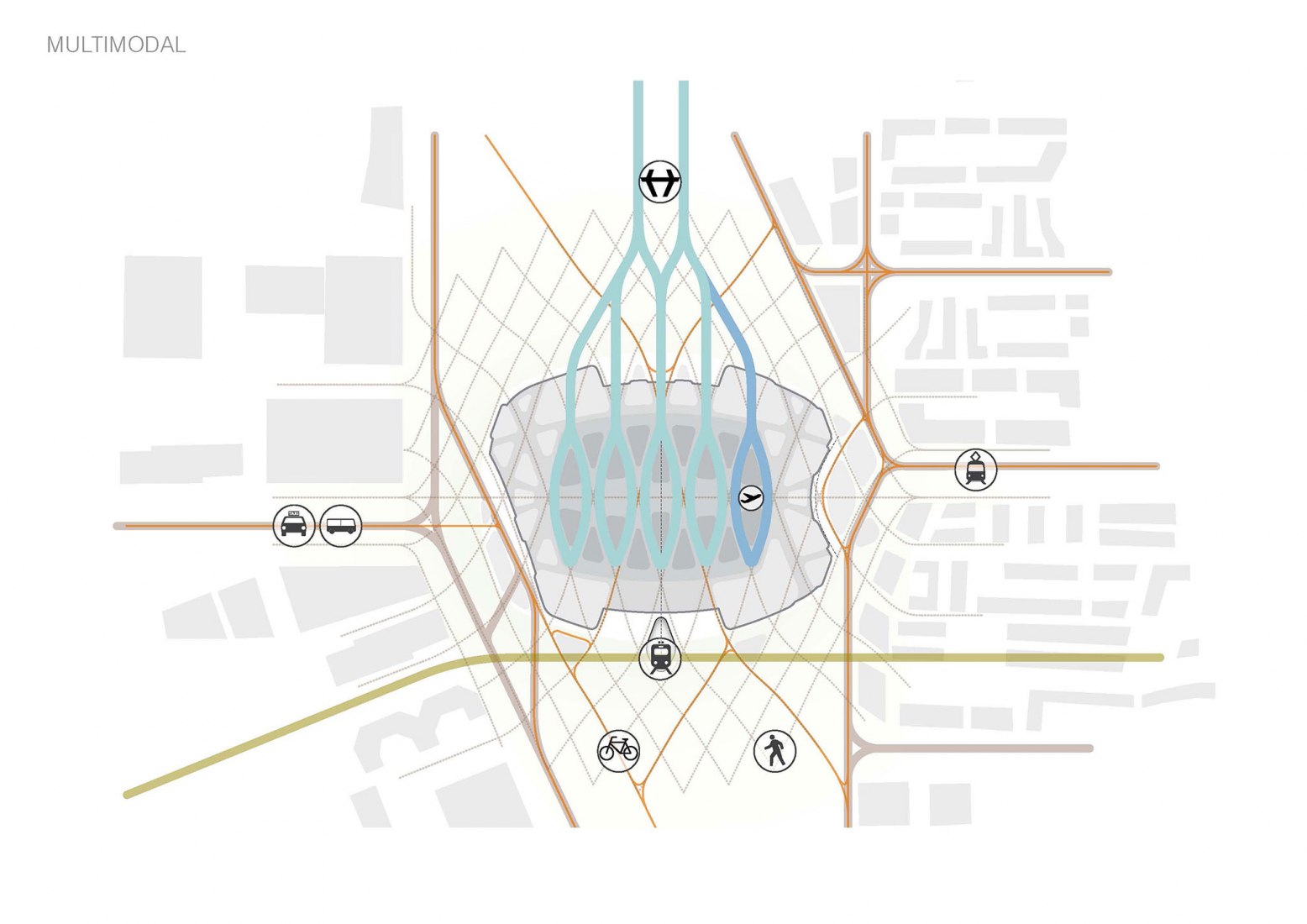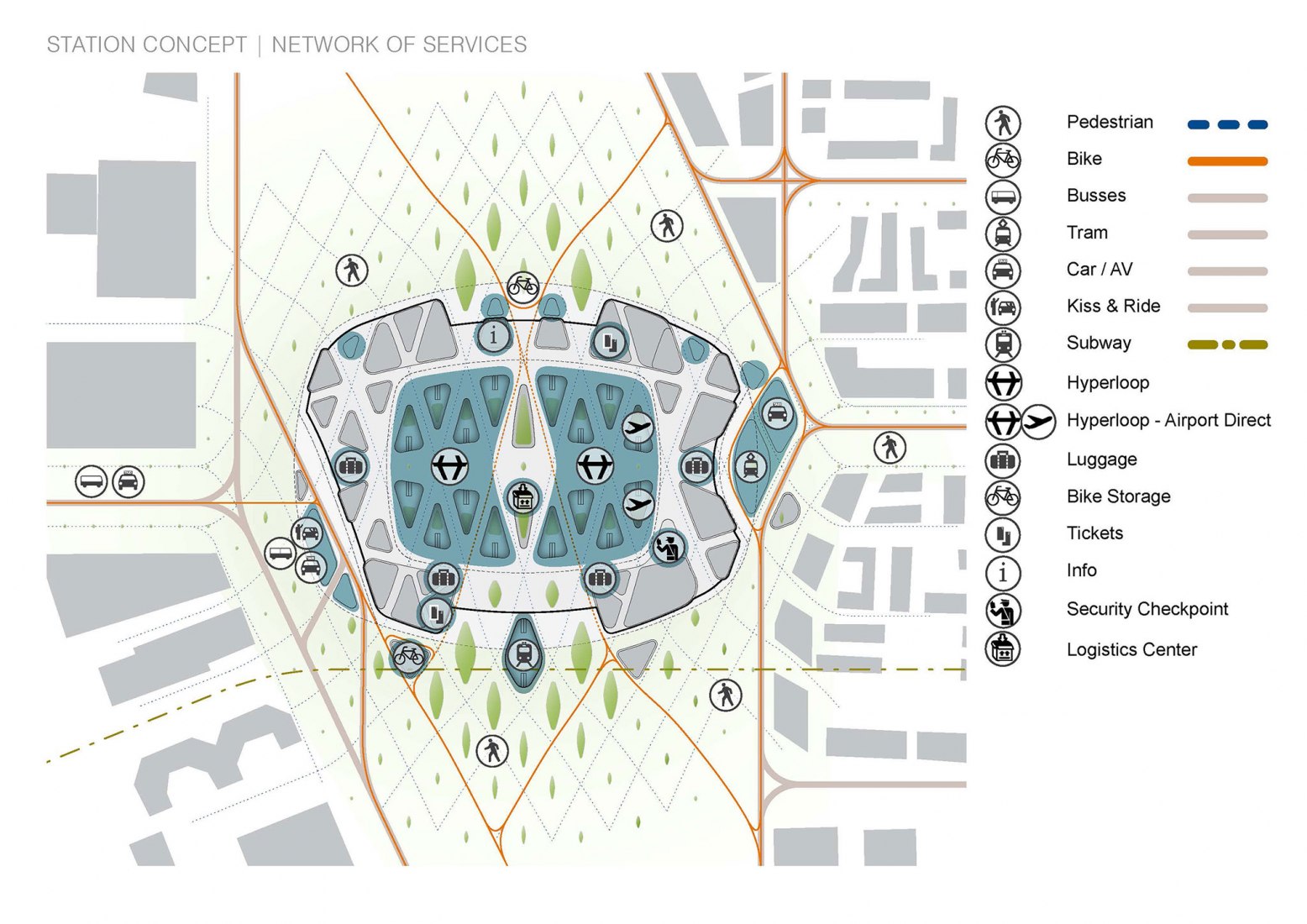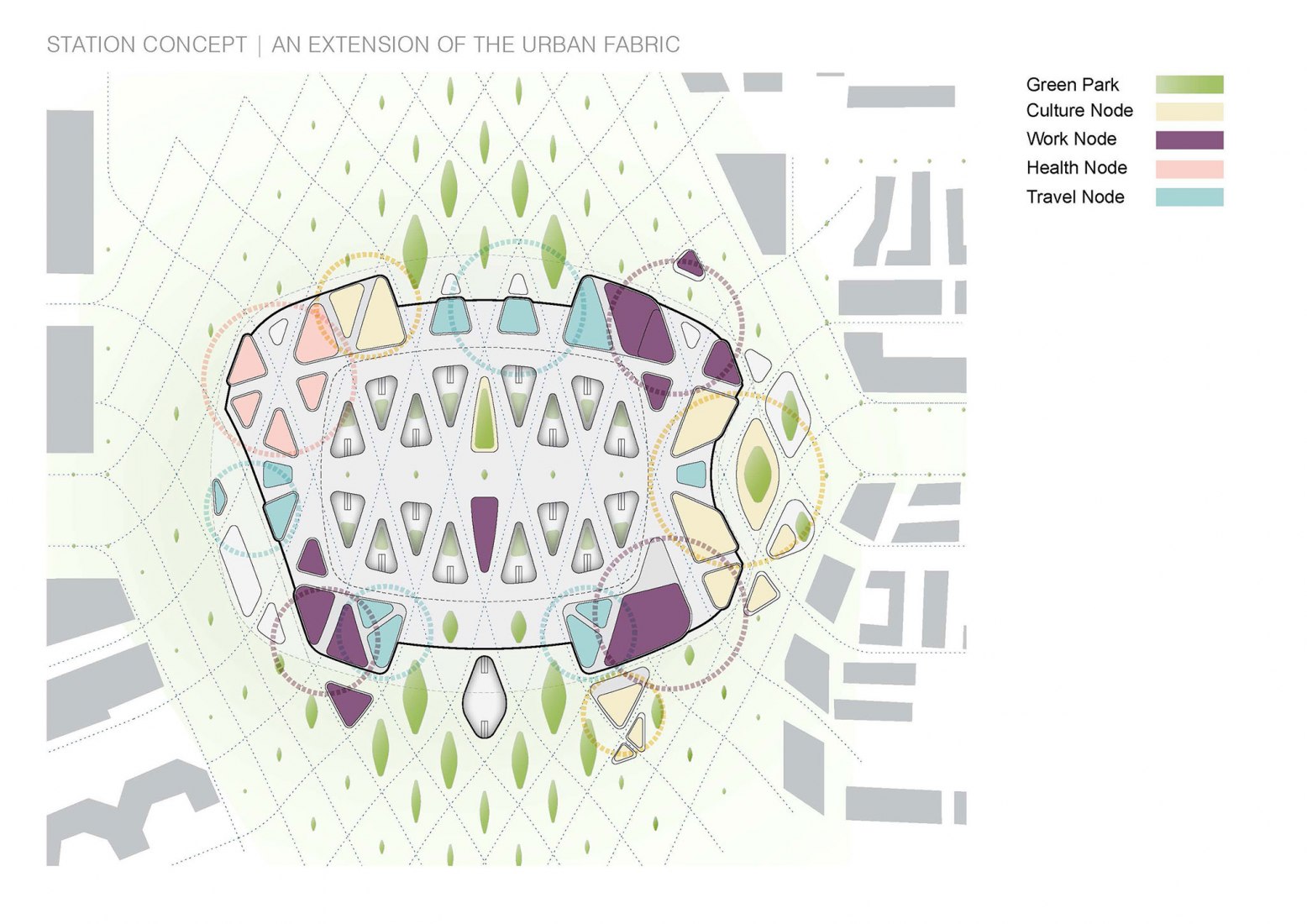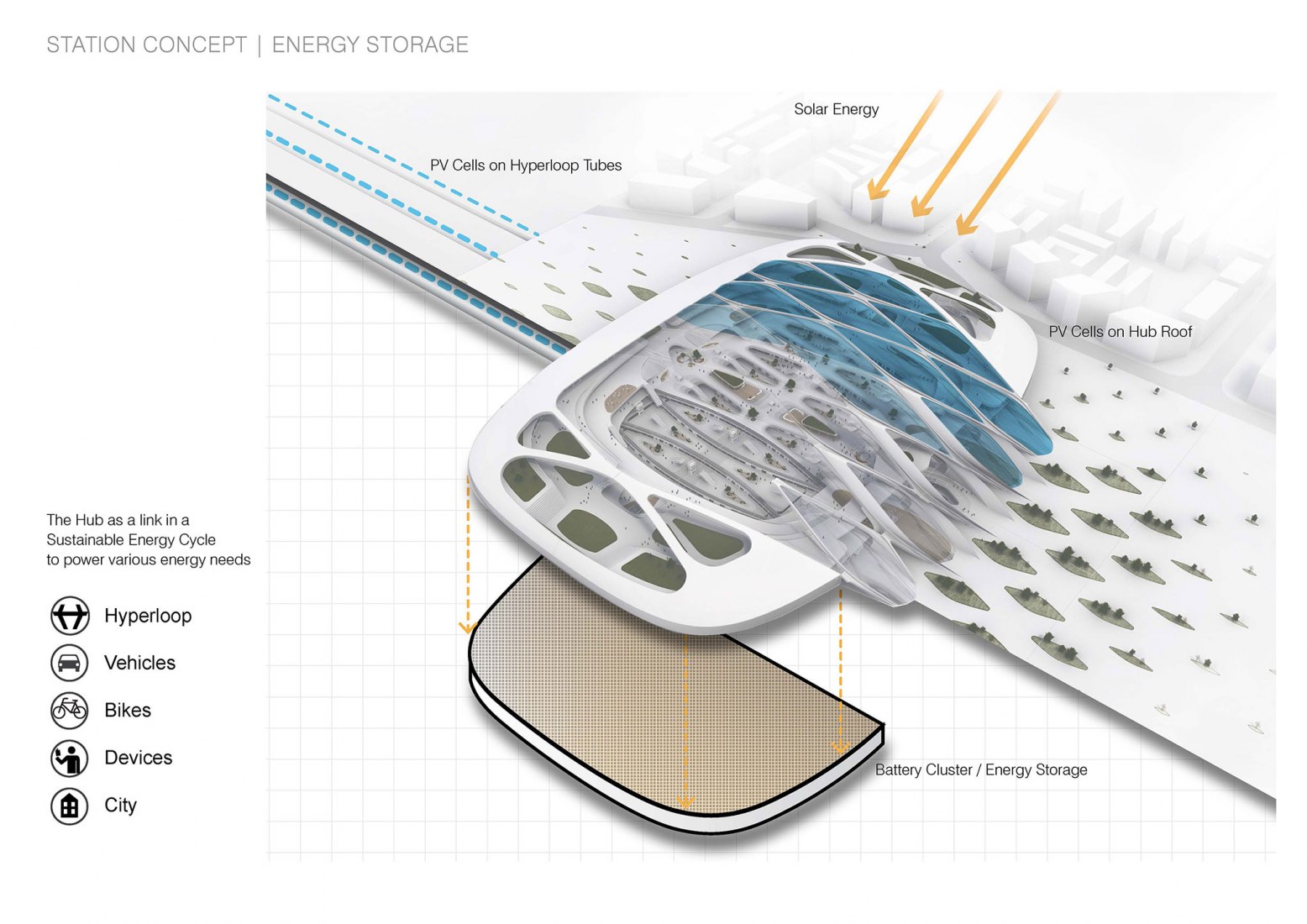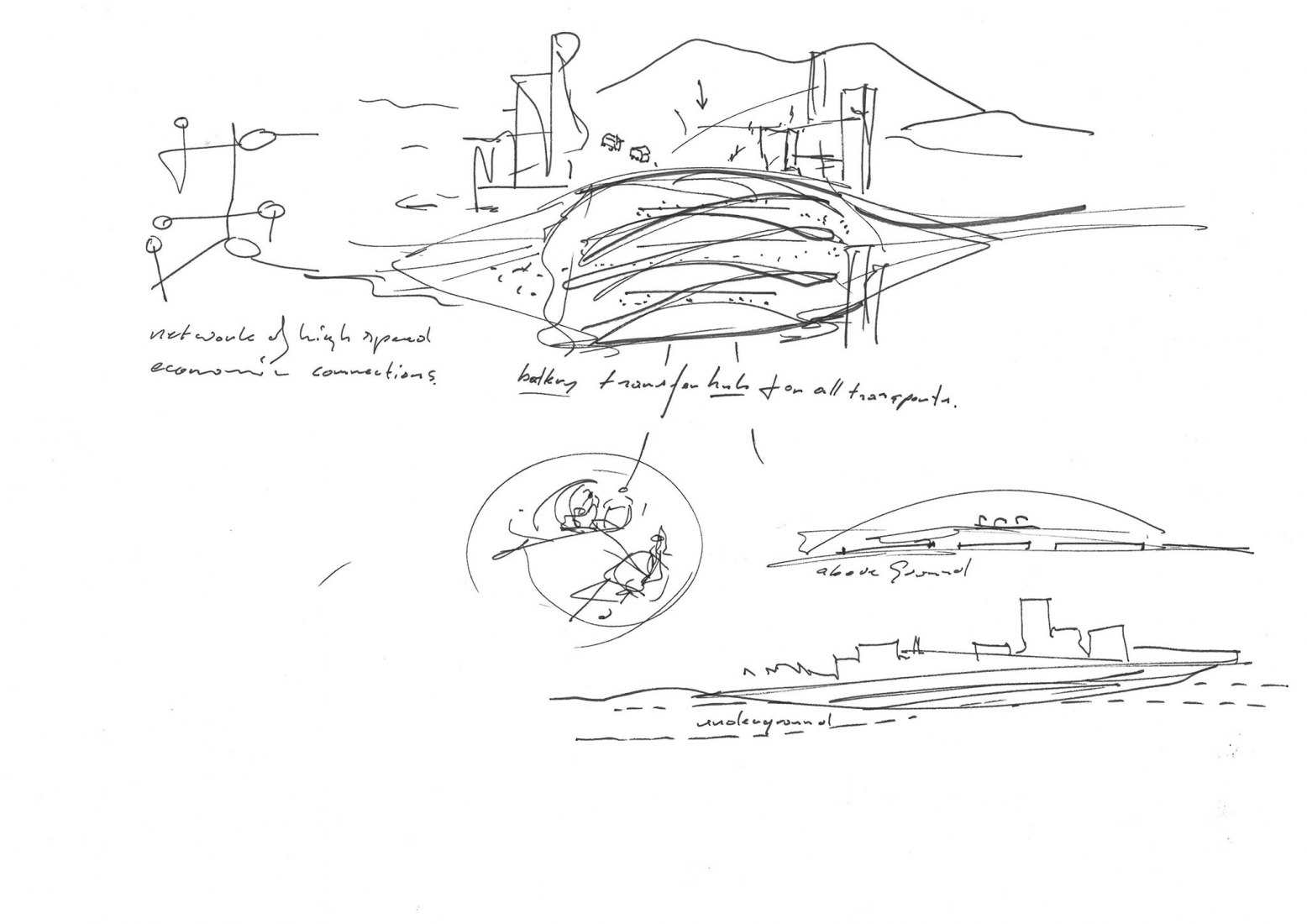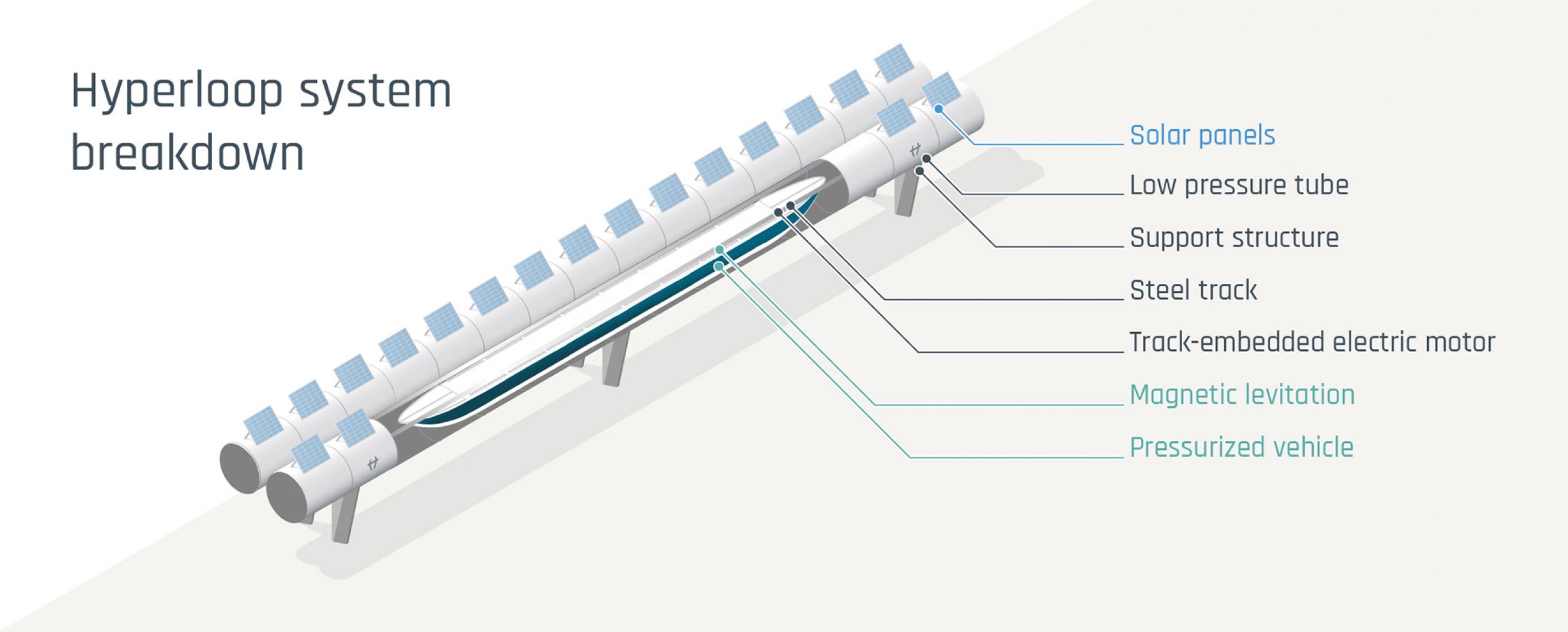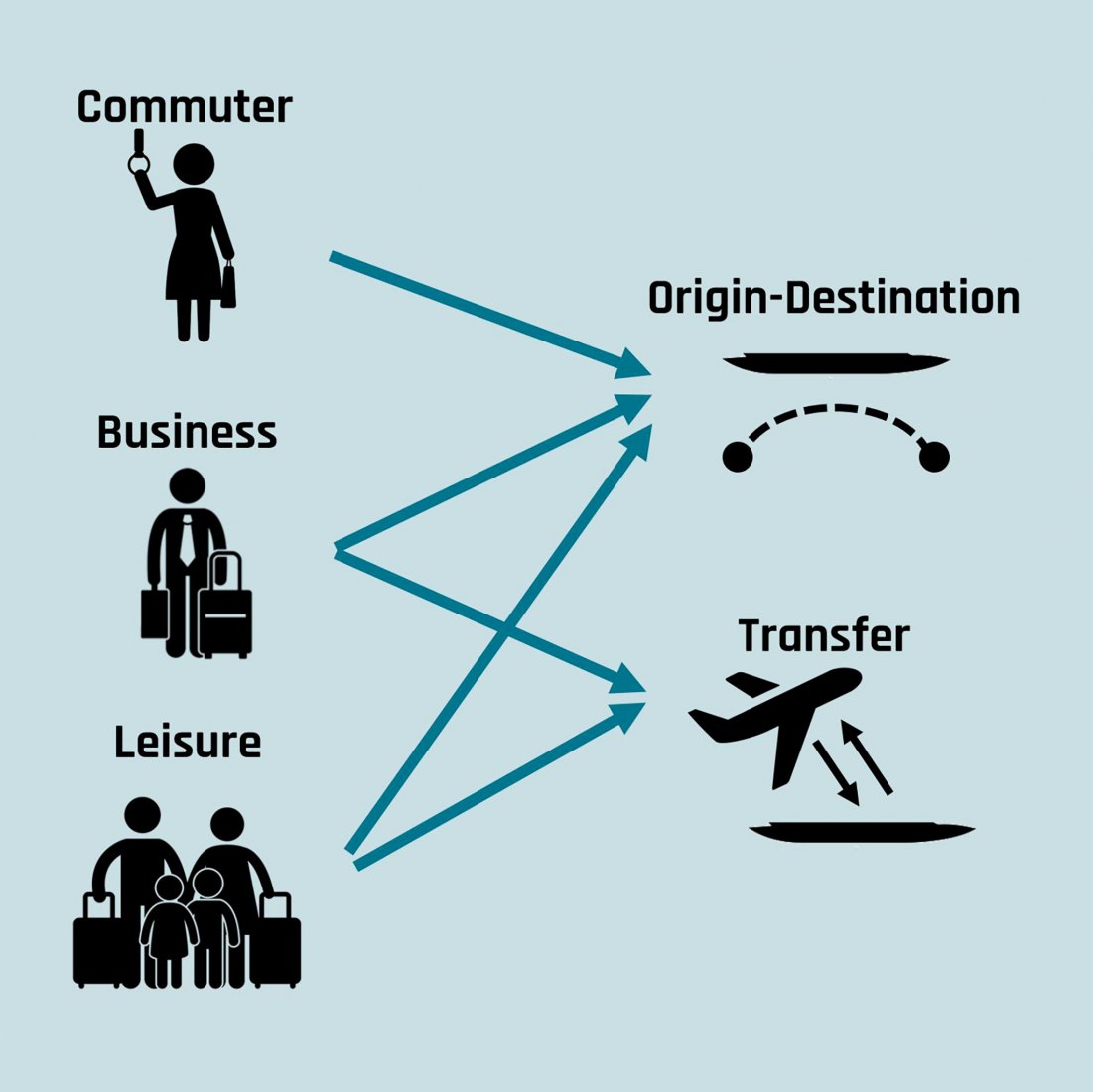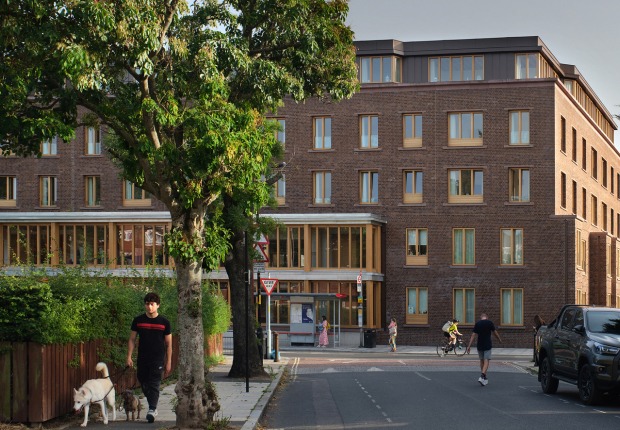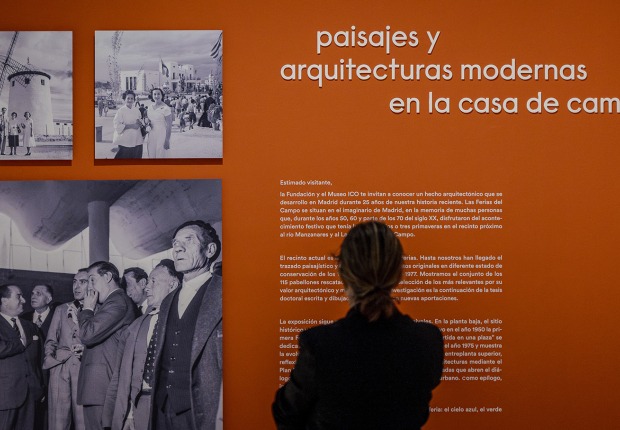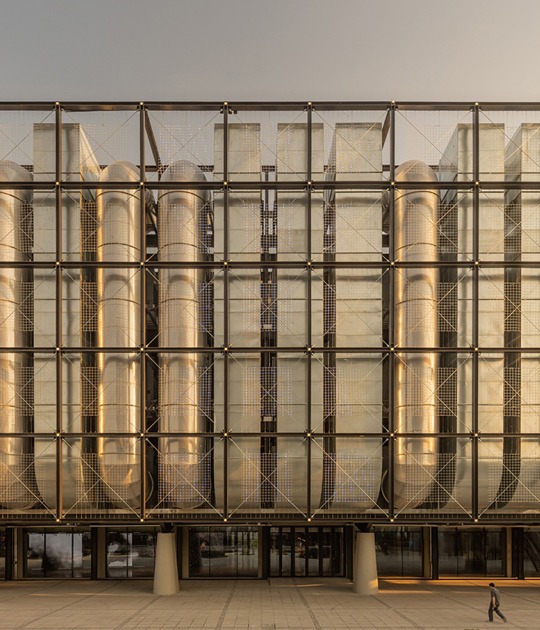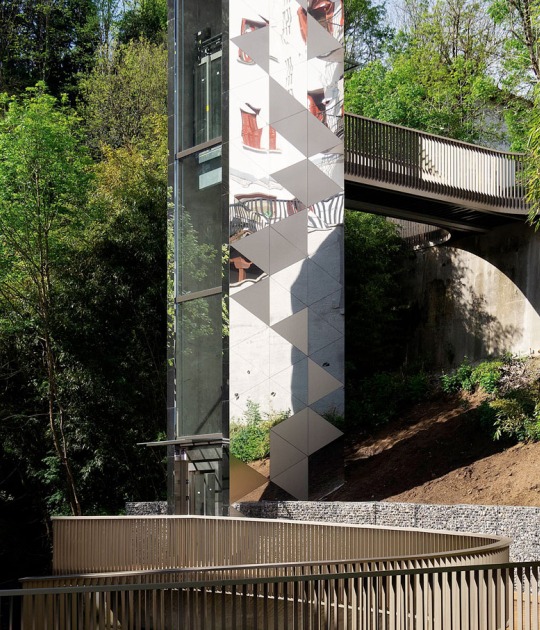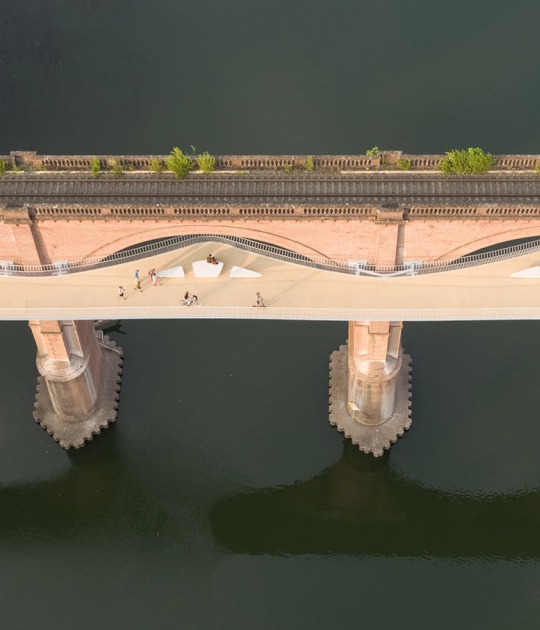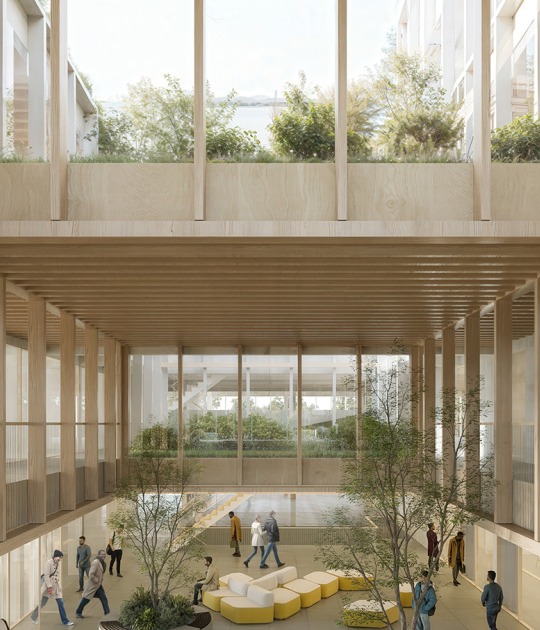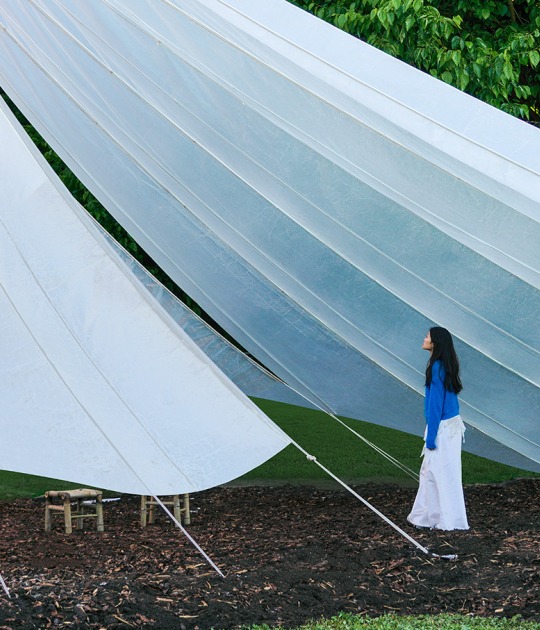The proposed hyperloop will run from Amsterdam to Frankfurt in 53 minutes. Using technology powered by solar panels, hyperloop will produce no sound or environmental emissions and can provide the necessary energy to power itself. It will be the first ever 100% electric transport system that can safely transport a high volume of passengers from city to city at unprecedented speeds and journey times.
The station has been envisioned as a series of tessellating components which can adapt to a range of possible contexts: city-centre, edge of city or adjoining an existing infrastructure hub, such as an airport. Existing cities mean existing parameters, and UNStudio envisages a symbiotic relationship with its local environment: an integrated piece of an urban composition.
Modularity and connectivity at all scales
Commitment to connected modularity is at the core of the hyperloop system. It's what makes the system scalable, adaptable and resilient; able to adapt its service in real time, according to demand throughout the day. The route itself will be modular: comprised of both a super-high-speed network and more regional networks, which will connect urban areas and important hubs (such as ports and airports) to the ultra-high-speed network.
This modular thinking extends throughout the system, from tracks to vehicles and also forms the basis of UNStudio’s vision for the hyperloop stations. From platforms to functional spaces and to the roof which extends out over the transfer hubs, a modular design framework organises and connects all parts.
The modular system upon which the design is based enables the station to adapt to existing conditions, blending into the existing built fabric. It also allows us to integrate above and underground, growing modules up to meet a dense inner city neighbourhood, or down to blend with a more low-rise setting.
Once inside the station, the speed of the hyperloop vehicles allows platforms to be curved rather than orthogonal, bringing an inviting organic form to soften the geometry of the module. Each module can hold a different function, from the purely pragmatic luggage check-in or bicycle dock, to daycare for busy parents or small biophilic pocket parks for kids and adults alike. In this way the modular strategy allows the functional and the activity-based elements to overlap and interrelate, creating spaces to meet, explore and play.
